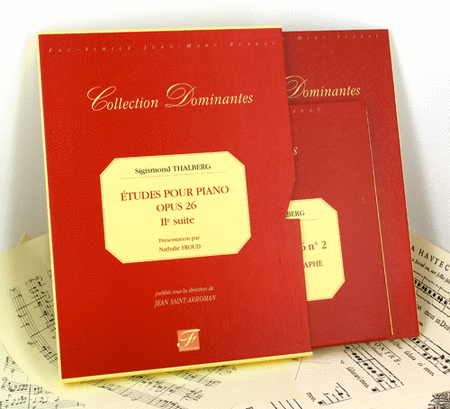Sigismond Thalberg (1812 - 1871)
 Autriche
Autriche
Sigismond Thalberg (Geneva, Switzerland, January 7, 1812?Posilipo, Naples, Italy, April 27, 1871) was a virtuoso pianist and composer. He was the illegitimate son of Count Moritz Dietrichstein and a Ms. Fortunée Stein, believed by some to be Jewish. ... (Read all)
Source : Wikipedia
 Autriche
AutricheSigismond Thalberg (Geneva, Switzerland, January 7, 1812?Posilipo, Naples, Italy, April 27, 1871) was a virtuoso pianist and composer. He was the illegitimate son of Count Moritz Dietrichstein and a Ms. Fortunée Stein, believed by some to be Jewish. ... (Read all)
Source : Wikipedia
STUDIES Free sheet music of Sigismond ThalbergSee also the "Instructional & Methods" section.
1 sheets found sorted by:
Search #Studies
| |||||







